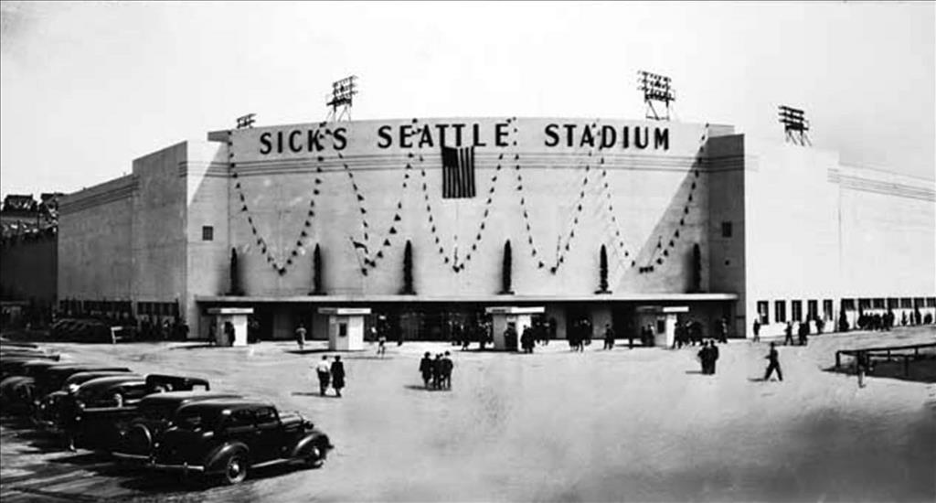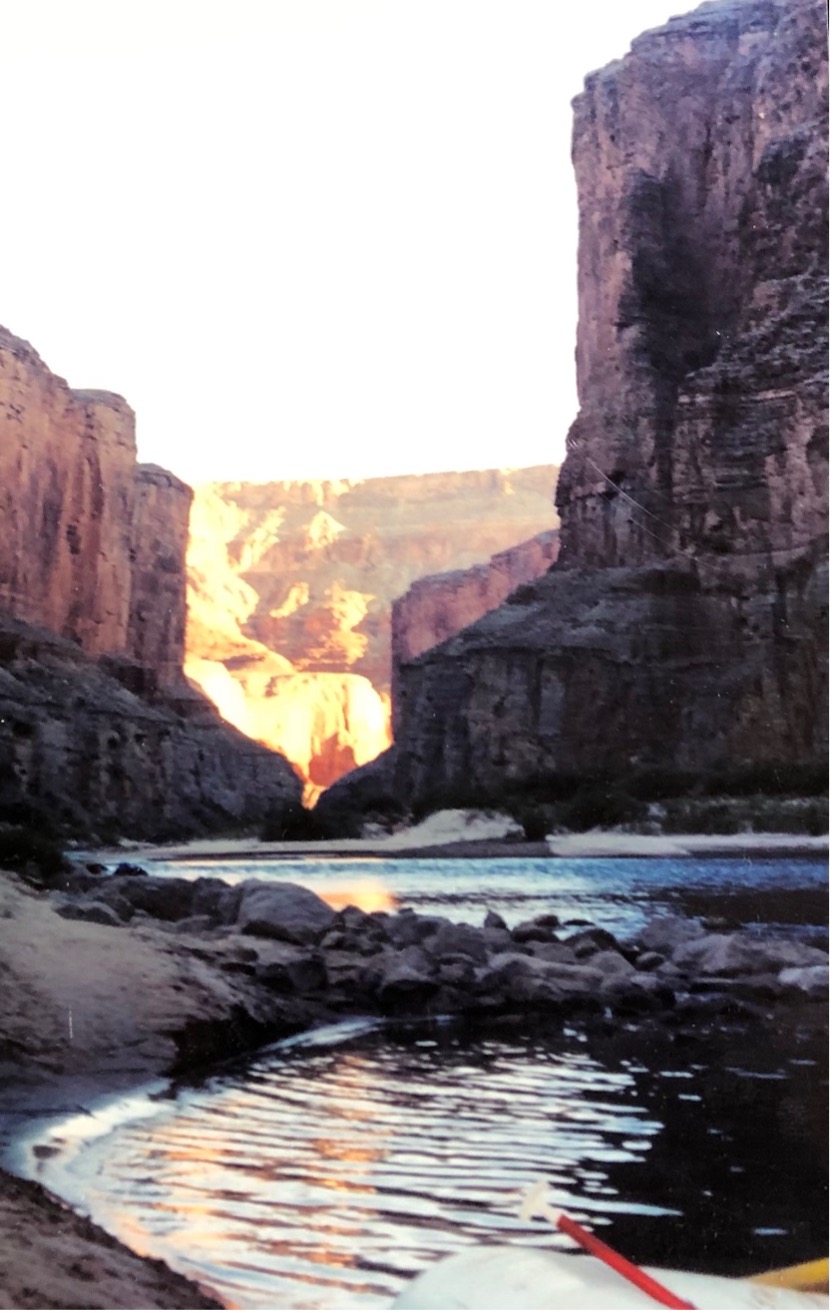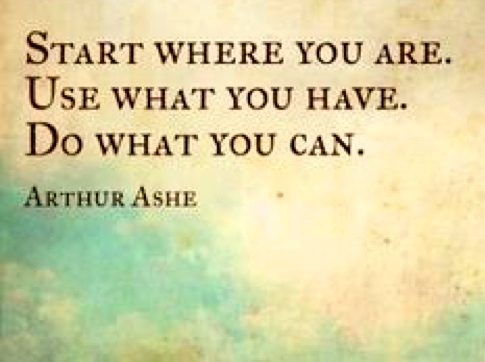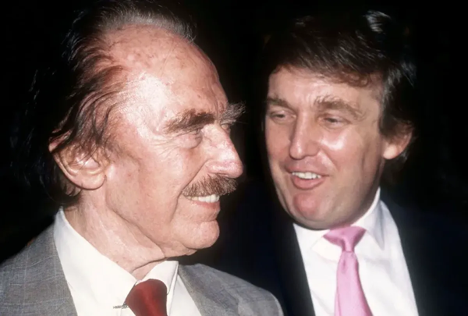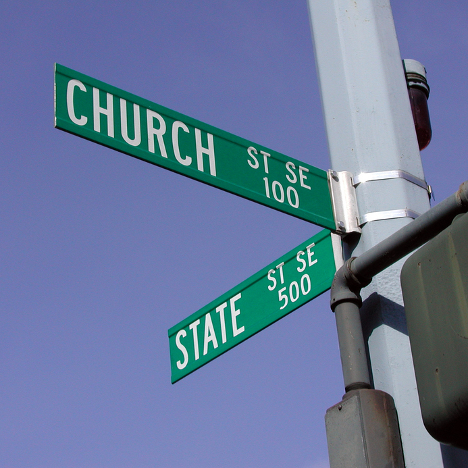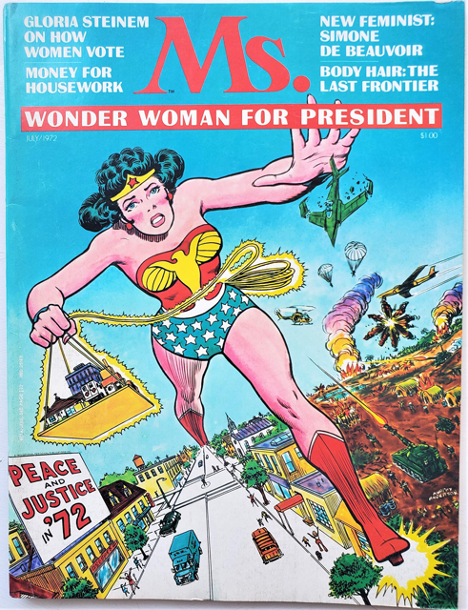When I was a kid, cameras had become common and affordable. Brownie box cameras were the rage. My parents bought one, but rarely took pictures. There are a few of me as a baby, a gap of a few years, and a few more from my elementary school days.
When my mother died, I inherited the scuffed leather photo albums, pictures yellowing under acetate, that had been gathering dust in her bookcase. Now, they’re in a box under my desk along with more personal history – journals, notebooks, old letters, and other memorabilia.
As an only child, I’m always alone in those early pictures. Most were taken behind our house on Capitol Hill and might be seen as a posed series because of their similarity – all taken against the hedge backdrop in a corner of our backyard.
In one photo I’m dressed as a cowboy with chaps and sheepskin vest, six-guns, boots, and a cowboy hat. In another I’m a soldier with a helmet and rifle and yet another shows me in a baseball uniform with long socks and a choked-up bat.
Archive for Sports

My friend Joel Leidecker died in April. We had known each other for 63 years. We were fraternity brothers at the University of Washington. He was younger and I didn’t know him well back then, but. we reconnected when he and wife Jody moved their family to Ketchum in the mid-1970s.
Their boys, Erik and Matt, were soon friends and classmates of my kids, Doug and Diana, and I remember when they were about 9 or 10 Doug and Erik roped up to climb a big boulder in the center of town. They’ve continued climbing and skiing and today Erik runs Sawtooth Mountain Guides and is helping Doug, a former Green Beret, get his mountain guide certification. Needless to say, their connection has endured. read more
Almost from the beginning of these conversations I’m on the defensive. I say I’m not talking about race. I explain that I’m talking about a person or a behavior. I’m expressing my opinion that the behavior is unacceptable, or that the person is acting like a jerk or simply out of line, but inevitably I have to defend myself against a charge of racism.
Am I a racist? Am I blind to my own prejudice? Maybe. I’m certainly aware it’s a possibility. I’m white. I grew up white. My parents were white and it’s possible I’m simply unaware of my racial bias? I sometimes ask myself if my criticism of someone is well founded or whether it’s because its object is a person of color? I could be wrong, but isn’t that kind of criticism of me just a racist trope, accusing me of racism because I’m criticizing a person of color? Am I supposed to limit my social commentary, especially negative commentary, to white folks like me?
The dictionary defines racism as the belief that a particular race is superior to another, that race is the primary determinant of human traits and capacities and the differences produce the inherent superiority of a particular race.
So where am I coming from? What’s this really about? It shouldn’t be a surprise, it’s about Serena Williams, that never-ending lightning rod for racial controversy.

The greatest woman tennis player of all time? Yes. 23 Grand Slam titles? Yes. Rises from the ghetto in Compton to become a champion? Yes. New mother? Yes. Poor loser? Yes. Bad actor? I think so.
Last weekend, down 2-6, 3-4 in the US Open Women’s Championship match she lost it – the match and her emotional cool. After being outplayed by 20-year-old Naomi Osaka for almost two hours Serena had a meltdown that cost her (1) a warning for a coaching violation (2) loss of a point for breaking her racquet and (3) loss of a game for verbally attacking the chair umpire. With the score then 3-5, Osaka finished off the match to win the championship. The final score 6-2, 6-3. It’s worth pointing out that in their only other meeting, at the 2018 Miami Open, Osaka beat Serena 6-3, 6-2 to win that championship too, making it two wins to none for Osaka in head to head matches with Serena.

In the interest of full disclosure, despite her unparalleled achievements as a tennis player, I’ve never liked Serena Williams. Never – but it’s not about tennis. I see her as a hypocrite and sore loser. She may be the greatest woman tennis player of all time, but I don’t think she’s an admirable person. I respect her sister, Venus, but think Serena is an insincerely modest winner and a sore loser – blaming anyone but herself when she loses.
Over the years she has had a series of incidents that reveal a pattern of self-destructive meltdowns. At match point, during the 2009 US Open semi-final against Kim Clijsters, an Asian lineswoman called a foot fault, that caused Serena to threaten the woman with, “If I could, I would take this fucking ball and shove it down your fucking throat.” That outburst cost her a point, after moments earlier being warned (a precursor to the penalty) for throwing her racquet (eerily like last weekend). The penalty point cost Serena the match (again, like last weekend).
And, last week’s dust up is not the first time Serena has taken the shine off an opponent’s US Open victory. In 2011, she lost the championship to Samantha Stosur, but sucked all the air out of the room by throwing a fit mid-match, berating the chair umpire, and refusing to apologize. Like her behavior in the Osaka and Clijsters matches, she was being badly beaten but created a firestorm that took away from her opponent’s well-deserved celebration.
That’s three notable instances of losses at the US Open in which her own churlish, out of line behavior diminished the achievements of another player. After last Saturday’s match the internet was alive with the Serena story, and many of my African-American and Asian friends came down heavily on Serena’s side, something I hadn’t anticipated and which added to my self-questioning. Am I being racist? Or sexist? I don’t think so, but I’m on the inside looking out.
It’s arguable that behavioral rules and penalties are subjectively applied in tennis. Serena argued forcefully that penalties are imposed more often against women than the men, but an article in today’s New York Times shows that to be false.
I’m a huge tennis fan. I play 3-4 times a week and spend hours watching the Grand Slam events. I get up at 2 a.m. to watch the Australian Open, 5 a.m. to watch the French Open and Wimbledon, and have attended all of them. I’ve also been a player for over 60 years.
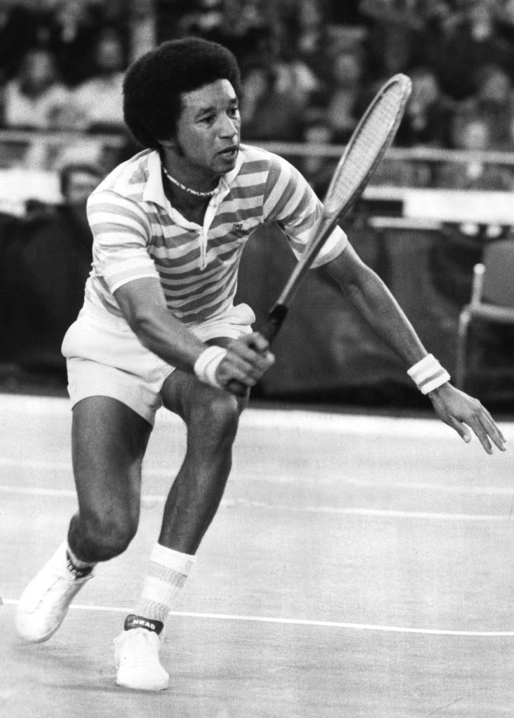
I don’t think of myself as racist, but I’m obviously bothered by the criticism. I’ve been a civil and voting rights advocate since the ’60s and have a wide circle of friends who are also active, but I’m reminded of the old saw about “Some of my best friends are black (or Jewish).” I don’t think I’m like that, but we all see ourselves through self-serving lenses.
Having acknowledged my concern, I can say honestly that my all-time idol, regardless of race, is Arthur Ashe–not just in tennis but in every way. He was a trailblazer in America and challenged apartheid in South Africa. He died of AIDS but faced it with courage and dignity. His autobiography,“Days of Grace” is my favorite of the genre. He happened to be black and a tennis player, but those are not the attributes that made him admirable. It was his humanity and courage in the face of real adversity that made him great. I see a similar quiet dignity in Naomi Osaka, the 20-year-old mixed race (Haitian/Japanese) woman who defeated Serena last weekend, and I look forward to seeing a lot more of her in the future.
I realize that my criticism of Serena is a no-win situation. Last year I wrote an article called “We’ll Never Get Over Slavery. I sincerely believe that to be true, but I try every day to live as if it isn’t and to emulate Arthur Ashe. I wish Serena would too.

This morning I saw a Facebook post from my friend Pete. He was writing from a swim meet in Brunei. Now how exotic is that? A middle school swim meet in Brunei? I used to think it was a stretch to drive my son to West Yellowstone for a XC camp.
The genie is really out of the bottle; live globally, play locally. Pete lives in Bangkok. He’s married to a lovely Thai woman and they have a 12-year-old daughter who swims. Brunei? It’s not Spokane, Pocatello, or West Yellowstone but there was a team competition there last weekend that drew 7 teams, including hers.
Pete’s message got me thinking about how much things have changed. We’re obviously older, but even so there’s a new normal here. Places that used to be exotic are “vacation” destinations and there’s an outfitter waiting to take you there. Activities that used to be adventurous are commonplace today – whitewater kayaking, rock climbing, backcountry skiing, kiteboarding – and there are route maps, apps, cell phones and GPS to support them. I called Marilynn from the summit of the Grand Teton to tell her I was OK. Back in the day, the nearest phone was a four hour walk to Dornan’s General Store in Moose, Wyoming.
As I’ve gotten older I’ve scaled back on the adventures, nothing extreme these days – no jumping into Corbett’s Couloir at Jackson Hole, no riding Porcupine Rim in Moab, or climbing down a rock face to reach “Hidden Beach” on Kauai. Nowadays the pleasure comes from finding an moderate pitch of untracked powder, an isolated beach, or a tree-lined one-lane road at sunset, and even these things are harder to find. I remember when hardly anyone skied the uncut stuff, or camped “sauvage” on a beach in Puerto Rico, or hauled a bike over the ocean to ride the back roads of France.
Lynn Campion caught me on the Ho Chi Minh Trail a few years ago (Sun Valley)
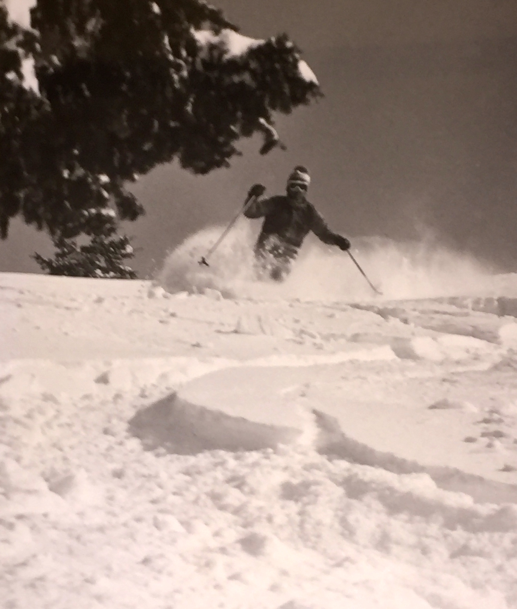
Old people have “bucket lists,” because most of them didn’t have a lot of adventure travels when they were young. They were studying, working, raising families, and only had two weeks vacation. Gen-X, Gen-Y, and Millennials (children of the middle and upper class) have come to adulthood with a lot more opportunity, flexibility, and money. I’ve never had a bucket list and don’t have one now. I’ve been lucky. I’ve been able to live my life upside down. As an airline pilot I could have been mistaken for a retired person – half the month off and free passes – and when I was working I was going to exotic places. World geography was part of my DNA. Opportunity and time were perks of the job, and it didn’t take a lot of money to chase my dreams. Living life upside down meant I didn’t have a “real” job until I was over 50, and though I ended up working until I was 75 I always enjoyed what I did.
I love the way it worked out for me, but I confess there’s a bit of envy when I realize that the big adventures are in the rear view mirror. I still like to ski and bike, but I just don’t have the legs, lungs, or mental toughness to skin up and climb for three hours, or mountain bike on a hairy-ass single track with a steep drop off. My friend, Mike Kane, died that way a few years ago and he was one of the best athletes I’ve ever known. The body changes. The balance changes. The vision changes. The reaction time changes. So it goes… literally.
I wouldn’t think of flying down 17th Street in Santa Ana at car top level again (headlines in the Santa Ana Register) though it seemed “normal” the day it happened. I was a lot younger then. Times have changed. My airplane is in a museum, and so am I (in this picture). I still feel great, but there are no more street level jet escapades in my future.

I think I can be excused if I sometimes adventure vicariously through my children and grandchildren. They feel the same way. They ski, climb, kiteboard, skydive, sail, hike, run, surf, mountain bike, fly-fish, kayak, do Tae Kwan Do, play water polo, and star in musical theater. Multi-talented.
Brent Snorkeling at Snowbird
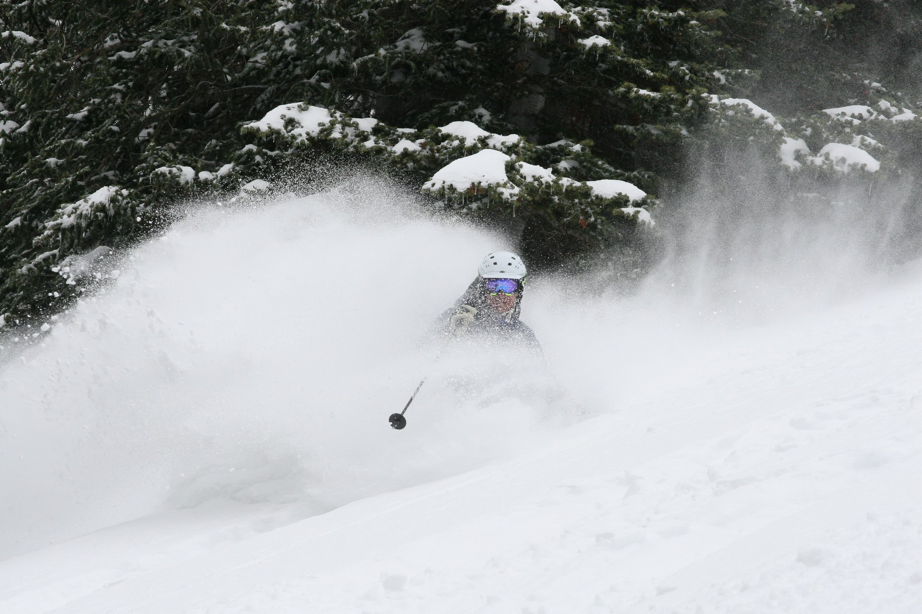
With his kids on the Colorado
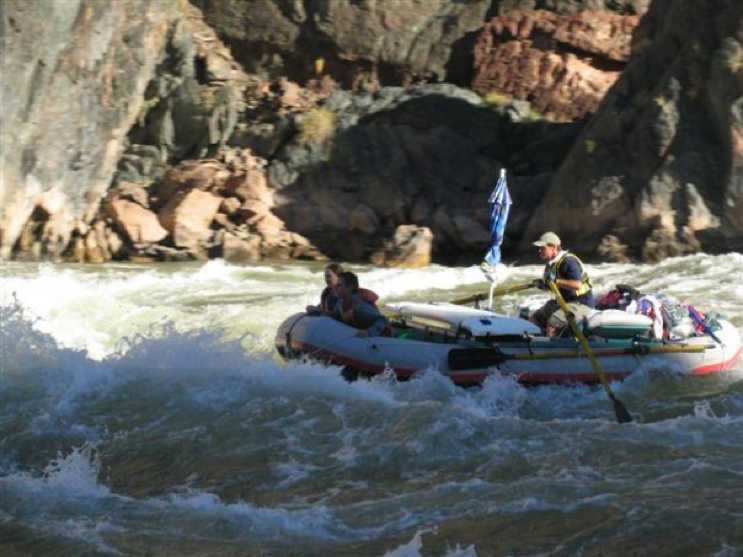
Georgia skydiving
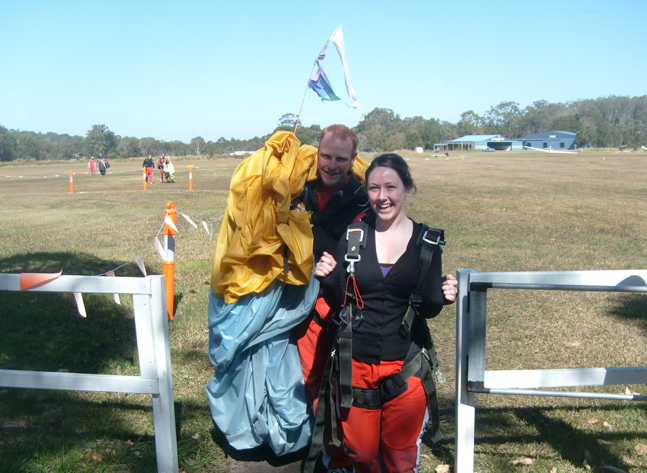
Doug you should follow Brent, he knows where the snow is.
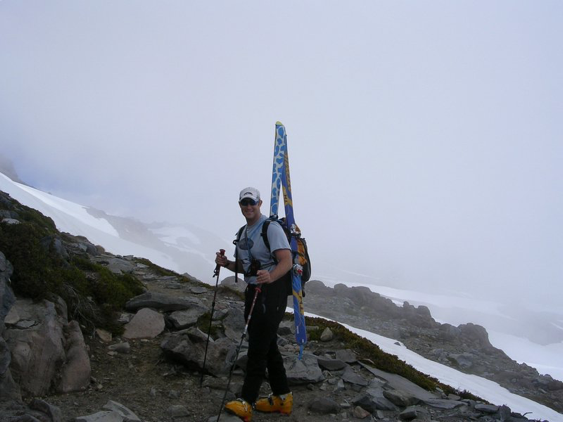
Will taking notes at an avalanche clinic
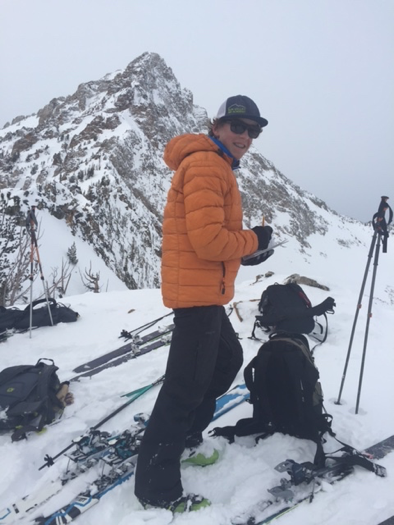
Charlie with his “Birthday Brown”
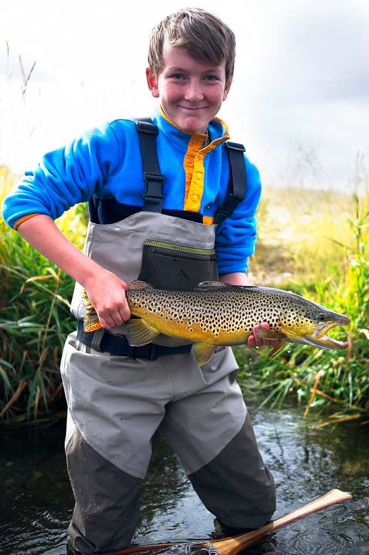
Diana and Charlie on the skate track
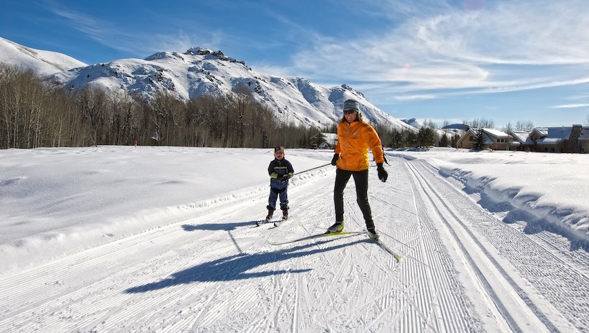
The Price boys in the big city – Go Sounders

Benny says “Watch out Fed I’m comin'”
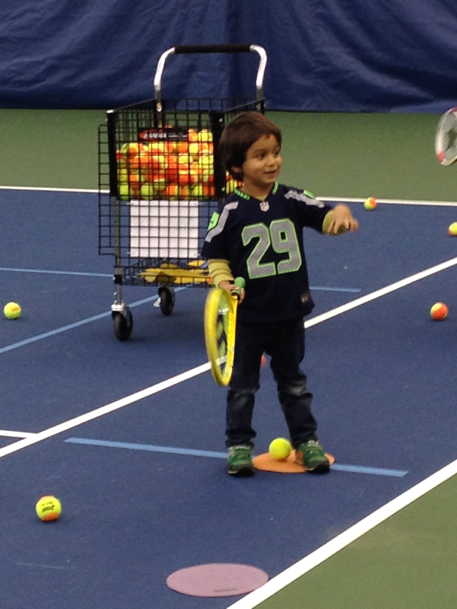
Lucie Plays “Select” Soccer read more
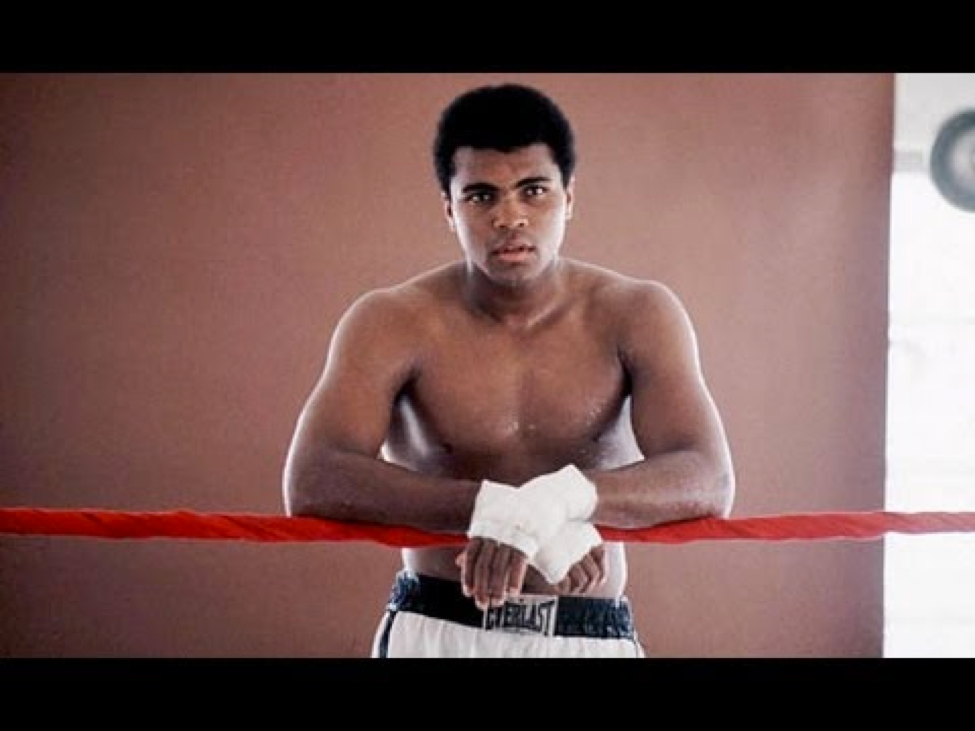
He was “pretty,” as he often said, but his last years were not pretty. On Saturday night Muhammed Ali died, ending his thirty year battle with Parkinson’s Disease. Early on, Ali’s life was about his superiority in the ring and the arrogant, provocative, rhyming couplets he conjured to celebrate it. After he stopped fighting, his life was about character, integrity, and a different kind of courage. In the prime of life he suffered for his principles but stood by them. He was stripped of his title and barred from boxing. He lost three professional years for his opposition to the Vietnam war. He later dedicated himself to making the world a better place for all people.
But, before there was a Muhammed Ali there were other inspirational athletes who shared their courage and truth with us – Jesse Owens, Paul Robeson, Jackie Robinson, Althea Gibson, and Arthur Ashe were all exceptional, inspirational athletes who happened to be people of color. A recent film about Jesse Owens and the 1936 Olympics reminds us of an earlier time when courage and conviction were tested in a bona fide battle between good and evil. Race celebrates Owens’ 4 gold medals at the Berlin Games and shows how his performances undercut Hitler’s plan to use the Games to validate his theory of a white master race.
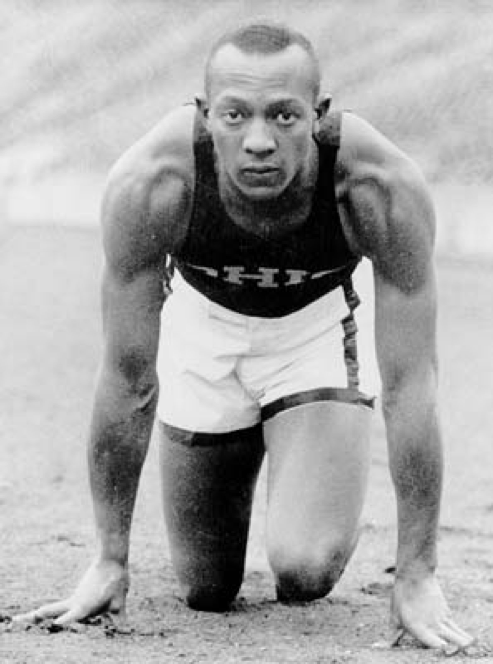 It’s sometimes difficult for us to accept America’s history of slavery and racism while we celebrate triumphs like Jesse Owens’ remarkable performance at the ’36 Games. Race does a credible job of showing the discrimination and indignities Owens suffered as he prepared for the Olympics and following his triumphant return to New York. In one touching scene he and his wife are prevented from entering the Plaza Hotel through the front door and directed to the service entrance in spite of the fact that the event they were attending was being held to honor him and celebrate his victories.
It’s sometimes difficult for us to accept America’s history of slavery and racism while we celebrate triumphs like Jesse Owens’ remarkable performance at the ’36 Games. Race does a credible job of showing the discrimination and indignities Owens suffered as he prepared for the Olympics and following his triumphant return to New York. In one touching scene he and his wife are prevented from entering the Plaza Hotel through the front door and directed to the service entrance in spite of the fact that the event they were attending was being held to honor him and celebrate his victories.
Racism is a snake pit for white people to write or talk about. If we criticize “people of color” (an interesting euphemism) we are dismissed as racists or told we can’t possibly understand due to our white privilege. We can’t use the language, dialect and epithets that black people use to describe their peers, and if we charge a black person with racism the charge is likely to be characterized as racist.
As an ardent tennis player and fan, my feelings about Serena Williams are especially complicated by this double standard. I’m amazed at her overwhelming superiority and competitiveness on the tennis court but disgusted by her petulant, angry, unapologetic, poor loser sulks and her insincere graciousness in victory. She pouts, slams racquets, insults officials, threatens linesmen, and accuses stadium crowds and the media of racism. I wish she would just take her trophies and fade into the background. Maybe with time my feelings will change or she will. Throughout her career she has been her father Richard’s child. His racist remarks are often worse than her bad court behavior. The provenance of her disturbing behavior is not important. It’s enough that she continues to behave badly, and it pisses me off when comments like mine are characterized as racist. I said the same things about John McEnroe and Jimmy Connors. Bad manners and ugly behavior are the same regardless of skin color.
In this exchange with a lineswoman Serena shakes her racquet threateningly and says, “I swear to God I’ll take this fucking ball and stuff it down your fucking throat.”
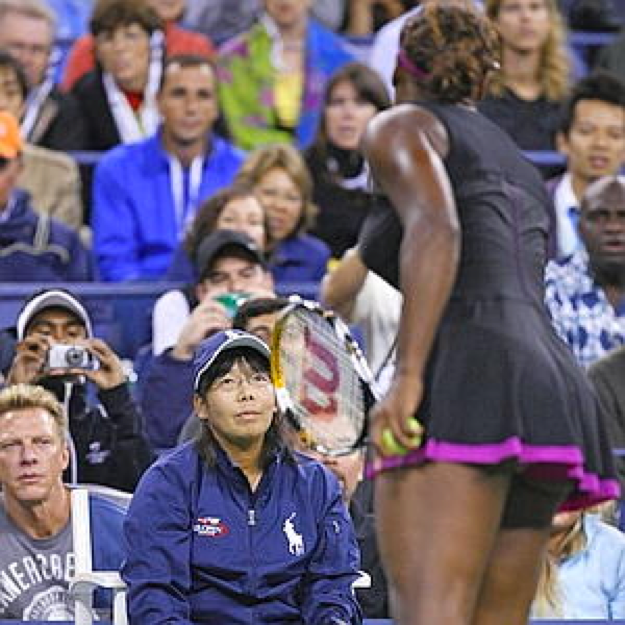
I always hope that Serena will turn the corner and become an ambassador for the sport much as McEnroe and Connors have done. Maybe once those roiling competitive juices stop fueling the drive for Grand Slam victory #22, she will chill out. She has been a remarkably successful champion. I’d be happy to eat my words and see her transformed into a statesmanlike ex-champion like Arthur Ashe.
In our pursuit of excellence we often look to successful athletes for role models, but we are really talking about leadership, integrity and courage whether it’s on the field, in the boardroom, or in the White House. In the current Presidential election cycle it is worth remembering that for every Donald Trump there is a Barack Obama just as there is a Ray Rice for every Muhammad Ali. It’s incumbent on us to choose our role models wisely. I want Serena to come down on the side of Ali, Owens, and Arthur Ashe. Maybe Arthur’s formula can provide the guidance she needs while, at the same time, it inspires all of us to be the best we can be:

About Me
What's New
“Working toward what I’m leaving behind.” Nick Cave (Artist)
